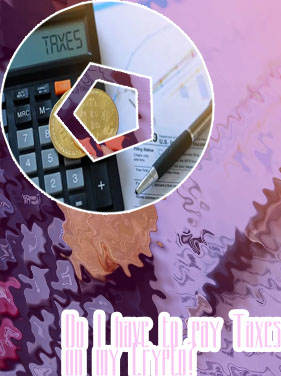Do you have to pay taxes on bitcoin
Bitcoin has become a popular investment option for many people, but confusion still remains about whether or not taxes need to be paid on transactions involving the cryptocurrency. To clarify this issue, we have compiled a list of 2 articles that discuss the tax implications of Bitcoin transactions. These articles will provide valuable information on how to navigate the tax laws surrounding Bitcoin and ensure that you are in compliance with the regulations.
Understanding the Tax Implications of Bitcoin Transactions

Bitcoin has been gaining popularity as a form of digital currency that operates independently of any central bank. However, many people are still unclear on the tax implications of Bitcoin transactions. It is important for individuals to understand that the Internal Revenue Service (IRS) has issued guidance on how virtual currencies such as Bitcoin are treated for tax purposes.
According to the IRS, virtual currency is treated as property for federal tax purposes. This means that general tax principles applicable to property transactions apply to transactions using virtual currency. When a taxpayer successfully mines Bitcoin or receives Bitcoin as payment, they have income that is taxable. The fair market value of the virtual currency on the date of receipt is used to determine the amount of income. Similarly, if a taxpayer pays for goods or services using Bitcoin, the taxpayer must report the fair market value of the Bitcoin as of the date of payment.
Failure to comply with these tax requirements can lead to penalties and interest. In recent years, the IRS has been cracking down on cryptocurrency tax evasion, sending warning letters to thousands of taxpayers who may have failed to report their virtual currency transactions. It is important for taxpayers to keep detailed records of all Bitcoin transactions and consult with a tax professional to ensure compliance with tax laws.
Tips for Reporting Bitcoin Income on Your Tax Returns
As the popularity of cryptocurrencies like Bitcoin continues to rise, it is important for taxpayers to understand how to properly report their Bitcoin income on their tax returns. According to recent data, the IRS has been cracking down on cryptocurrency tax compliance, with 10,000 warning letters being sent to taxpayers who may have failed to report their cryptocurrency transactions.
When it comes to reporting Bitcoin income, it is crucial to keep accurate records of all transactions, including the date of acquisition, the amount of Bitcoin received or spent, and the fair market value of Bitcoin at the time of the transaction. Failure to report this information can result in penalties and interest on unpaid taxes.
One key tip for reporting Bitcoin income is to use software tools specifically designed for tracking cryptocurrency transactions. These tools can help taxpayers calculate their gains and losses, as well as generate accurate reports for tax reporting purposes.
In conclusion, taxpayers should be diligent in reporting their Bitcoin income on their tax returns to avoid potential penalties and interest. By following the proper reporting guidelines and utilizing software tools, taxpayers can ensure compliance with IRS regulations and accurately report their cryptocurrency transactions. This article is important for taxpayers who engage in Bitcoin transactions and want to ensure they are correctly reporting their income to the IRS.













